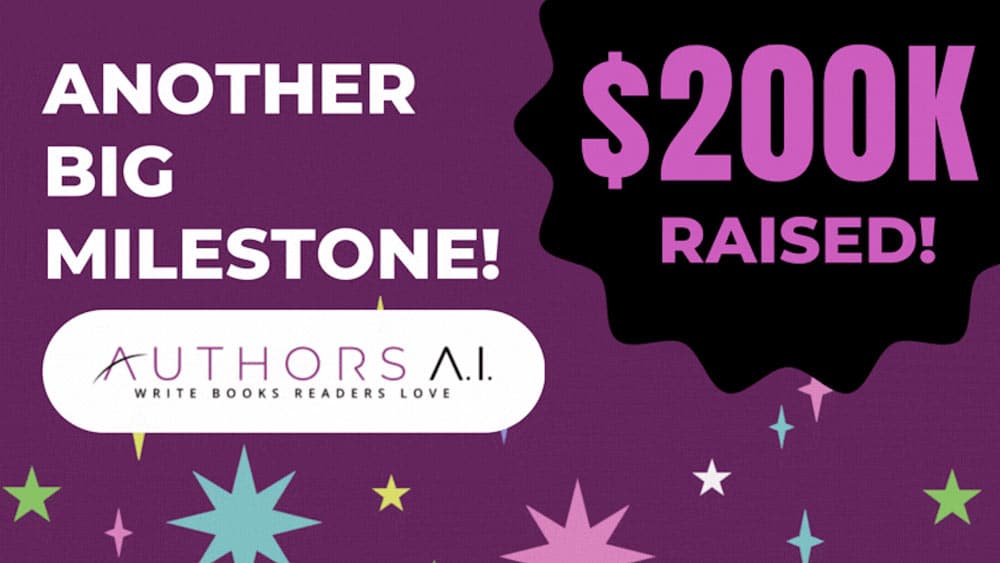As novelists, our most important job is to draw the reader into the story we’ve created and make it seem as real, if not more real, than the world from which she is seeking temporary escape.
But can we write only things that are real, or can we venture into the realms of the probable, possible, permissible, outlandish or absolutely beyond the bounds of all but the most disordered mind? The way to find out is by setting the ground rules.
Creating a real — or realistic — fictional world is harder than it seems. I’ve seen from reviews of my own books that what to one reader might be a true-to-life portrayal of police life, to another is unrealistic and implausible. Go figure.

I know of crime writers who’ve spent decades working in law enforcement. Equally, I know of others who’ve never set foot inside a cop shop and make up for it with research. Still others eschew research and simply imagine what life might be like for their fictional cops. Because they’re so good at that — and let’s remind ourselves that a vivid imagination is kind of a prerequisite for a successful novelist — they get away with a lack of experience or research.
Give your reader the rulebook
One thing you can do right from the get-go, as your readers take their first tentative steps into your fictional world, is to show them where they are and what rules apply. These rules will help them understand how your characters behave. The rulebook will also allow them to see what’s possible and what’s not.
The weird thing is, you can be as fantastical as you like, and readers will permit you to take them with you. They won’t call your plots ridiculous, your settings absurd or your characters implausible, even though they may be all those things and more.
Yet you could set your novel in a modern-day city with which you are intimately acquainted, populate it with Joe and Josephine Average characters, give them experiences we all understand, and still have readers reaching for the green eyeshade and the red pen. (Editing props, see?)
The question is, why? What makes a reader willing to accept, or swallow if you like, a world dominated by telepathic dragons and four-armed witches, yet unable to finish a love story featuring veterinarians set in contemporary Los Angeles?
Why your first sentence matters so much
The answer lies in the rules of the fictional world. And the degree to which your characters obey them.
Let me give you an example of how a novel might start out and, in the process, lay down the rule-scheme for its characters and plot. In each of the following examples, I’ll keep the basics the same and just play around with the concept.
It was fall 1939, and Hitler had just invaded Poland. Juliana and I heard the news on the crystal set I’d made in my garage.
It was fall 1968, and Hitler had just invaded Texas. Juliana and I heard the news when Mikey called on the video screen I’d set up in my den.
It was fall 2354, and Hitler had just invaded Poland for the fiftieth time. Nobody really cared anymore and Juliana and I kept on making out in my dad’s garage.
In the first version, it feels like a straight historical novel. Juliana and the narrator are clearly of that time and therefore we expect them to behave like dwellers in that world. We’ll have a good idea how they’ll speak, for example, and an expression such as ‘‘whatever” would jar. There’s a linguistic rule — an unwritten pact with the reader — by which the novelist must abide.

In the second example, there are four shocks in that opening 10-word sentence. Hitler? In ’68? Invading Texas? What the heck? And Juliana and the narrator hear the news on a video screen? What is this?
‘‘This’’ is clearly a counter-factual novel, perhaps a work of alternative fiction. It’s set in America. In the decade of the Summer of Love. And the evil dictator is a familiar figure. So we can’t, for example, have Juliana hopping on a Greyhound bus in Los Angeles and arriving in Chicago an hour later. There are geographical rules.
And in the third example, we could be in science fiction land, or possibly Black Humorville. But the action’s still taking place on Earth. Teenagers still make out. So there might be social rules to adhere to.
Outrageous, but acceptable, characters?
You can imbue your fictional world with creations as idiosyncratic or outlandish as your imagination can dream up.
You want alien vampires who can tolerate sunshine but not vegan smoothies? Knock yourself out. Biker gang bad boys with a soft spot for Labradors and a thing for Plain Jane waitresses? The field is yours. Vengeful ex-Navy SEALS with titanium skeletons and the power to lift tanks up with their bare hands? What are you waiting for?
But here’s the thing.
Your alien vampires can’t collapse, screeching, into a pile of dust when a shaft of early morning sunshine hits them in the kisser, just as they’re about to bite the heroine’s neck and drain her blood. It’s against the rules.

Your Harley-riding hooligan with a sleepy-eyed Lab tucked into his bike jacket can’t ride off into the sunset with a showgirl. It’s against the rules.
And your cyborg SEAL can’t be trapped under a fallen girder while the bad guy advances to finish him off in the name of suspense. It’s against the rules!
If you need to dispatch the vamp, have the heroine throw a go-cup of kale and snow pea slushie all over it.
Find the biker a dowdy waitress at an all-night truckstop and have the puppy entangle them with its leash.
Have a servo motor in the SEAL’s power-lift circuit fail three pages before the girder hits him.
Now the action makes sense to your reader, because it conforms to the internal rules of the world in which you’ve placed them.
Fictional truth versus poetic faith
You may have spotted by now that we’re talking about the concept of the willing suspension of disbelief. This handy phrase was coined by Samuel Taylor Coleridge in his 1817 work Biographia Literaria. (Chapter XIV, if you’re interested.)
Coleridge was talking about poetry rather than long-form fiction, but what he had to say is pertinent to our craft, as well as his own.
He conceived of two sets of poems. One would concentrate on everyday subjects and be written by his good friend William Wordsworth. The other would focus on subjects, ‘‘supernatural, or at least romantic,’’ to be written by Coleridge himself.
In these he said, ‘‘… the excellence aimed at was to consist in the interesting of the affections by the dramatic truth of such emotions as would naturally accompany such situations, supposing them real.’’
He continued, ‘‘… so as to transfer from our inward nature a human interest and a semblance of truth sufficient to procure for these shadows of imagination that willing suspension of disbelief for the moment, which constitutes poetic faith.’’
[My italics in both quotations.]
That semblance of truth is what I call true enough to be true. Or, to put it another way, not so outlandish that it breaks the spell.
In short, your account doesn’t need to be literally true. It must, however, seem true. That’s verisimilitude, the appearance of being true or real.
Is a boo-boo always bad?
Of course, there will always be subject experts, ever-ready to pounce with pedantic glee on our slightest slip. I have a friend who is an extremely successful writer of vigilante fiction. In his first book, he had a character flip off the safety catch on a revolver. For 99% of his readers, maybe 99.9%, that was fine. For the rest it was a boo-boo. You see, revolvers don’t have safety catches.
If everything else adheres to the rules, these readers tend to be forgiving. They might email us and let us know of our error, but rarely do they take to Amazon, Goodreads or their own blog to excoriate us in public. But if we’ve ridden roughshod over the rules we ourselves have brought into being, they’re not so understanding.
Here are a few ideas for how you can create, and then stay on the right side of, the rules for your fictional world.
Create a character bible
If you write series, create a character bible for each of your protagonists. List their favorite foods, what they do to relax, their tastes in music, literature and film. Do they have a favorite lemon drizzle cake recipe? Sniper rifle? Knitting pattern? Dog breed? Note it down.
How about their strengths and weaknesses. Eidetic memory? Put it in the bible. Because you can’t have them unable to recall a years-old conversation just because it gets you out of a tight spot.
Sense of humor that has perfect strangers falling in love with them? Don’t write clunkers for their slot at an open mic. Are they claustrophobic? Don’t have a serial killer lock them in a closet then have them calmly trying to pick the lock from the inside.
If, as you’re writing, you feel a momentary pang of guilt, don’t push it away. Examine it. I usually know when I’m reaching for something convenient for me rather than permissible within the rules, because I’ll hesitate before typing it. I might wrinkle my nose or hear an imaginary reviewer dissing this very plot point. And I’ll know why.
Particularly when it comes to endings, ask yourself whether the hero has resolved their conflict or achieved their goal using their own intelligence, strength, charm, intuition, retractable wings or whatever. If so, good.
But if you’ve dropped the solution into their lap via an act of divine providence, had them stumble over the missing clue, or have a best friend, colleague, passing encyclopedia salesman tell them something they don’t know, it’s limp and it’s not how things are supposed to be!
Is your name Sophocles?

The Greeks had a phrase for this type of ending in their dramas: Deus ex machina. Literally, ‘‘god from the machine,’’ it referred to the dramatic practice of having actors playing gods descend to the stage from a crane, or appear through the ground on a riser. There, they could bring the play to a conclusion.
It has come to mean, in its modern sense, an unlikely or improbable solution that arrives from nowhere to solve an apparently intractable plot point. And readers hate it! Of course they do! Know why? Of course you do! Repeat after me, ‘‘Because it doesn’t follow the rules.’’
But rules are made to be broken!
Is there an exception to this rule? Yup.
Think of psychological thrillers, an incredibly popular genre. A lot of these books rely on unreliable narrators. They tell you stuff that later turns out not to be true. Maybe it’s all a delusion. Maybe they’re gaslighting us, as well as their spouse. But narrators aren’t supposed to lie, are they? That’s not how fiction works.
And yet…
The thing about psychological thrillers is that the very concept of a rule-breaking narrator is familiar to fans of the genre. Things get a bit meta here, because readers are willing to accept a rule-breaking narrator (and, by extension, author) precisely because it’s sticking to the rules (or at least one of them).
Are you thinking to yourself, ‘this is where he trots out the hoary old phrase about learning the rules first in order to break them’?
Well, I’m not. Funnily enough, when it comes to grammar, spelling, the rendering of dialogue or thoughts, using adverbs and adjectives, story beats and character development — all of which Marlowe, the Authors A.I. bot can help you with — you can break the rules and still carry your reader along with you.
Not the rules you create yourself
But the rules you create yourself? For your own world, characters and plot? No. These, my friend, you do not break. For in breaking them you break the psychological contract you drew up and co-signed with your reader.
They won’t sue. They won’t call the cops. They won’t hang around outside your house with a placard.
But they will remember they’re reading a novel. They’ll drop out of that blissful state of flow where the inner world you’ve striven so hard to create becomes, for an hour or two, more real than the one they inhabit out there.
They will frown at the inconsistency. Why did she do that when she could’ve done that? How come he didn’t do this, when he did it at the beginning? What are they doing using those when she told him in chapter three they didn’t work against them?
And, yes, they will pass over the next book you publish, searching for a world to escape to where the inhabitants follow the rules made for them by their creator.
Want help in checking how your characters behave?
When I need an objective review of my work in progress or finished novel, I turn to Marlowe, the fiction-savvy artificial intelligence from Authors A.I. The character analysis gives you an overview of their behavior through your work. But as to whether you’ve stuck to your rules? That’s down to you.
GET FREE A.I. REPORTS






